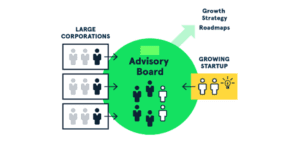1. Globalization – or not?
1.1 Factor 1: Economic framework
Having contributed strongly to economic growth in the past decade, globalization has recently been viewed more critically again. After the political desire to “bring back production” emerged in the USA and became increasingly attractive in Europe, especially in the wake of Covid, the concept of globalization was suddenly put to the test as it had not been for a long time.
Supply delays and bottlenecks make the idea of local production seem extremely tempting, especially in system-relevant areas such as healthcare. In this area in particular, however, the discussion quickly ends when the cost aspect is also taken into account. A massive increase in costs in this sector would be difficult and probably politically challenging to communicate.
A look at the differences in economic growth around the world shows that it would be enormously burdensome, if not impossible, for regions with lower growth, such as Europe, to forego markets with stronger growth, such as Asia in particular but also the USA:
Source: www.imf.org/en/Publications/WEO/Issues/2021/10/12/world-economic-outlook-october-2021#Projections
Additionally, the world order is undergoing massive change. Books like “The Asian Century: China and Japan on the Way to the New World Power” by Karl Pilny in 2005 or “The Future Is Asian: Global Order in the Twenty-first Century” by Parag Khanna 2019 describe the shift in global power quite well.
The gap is already particularly evident in the field of future-relevant technologies, as Kai-Fu Lee, ex-Google China CEO, start-up investor, and one of the world’s most renowned AI experts, points out in his book “AI Superpowers: China, Silicon Valley, and the New World Order,” published in 2018.
1.2 Factor 2: Changing demands of employees on their workplace and the way of working together
“Claustrophobic cubicles, stale coffee, monotone dress codes, idiot bosses, mind-numbing water cooler debates, migraine-inducing birthday celebrations, infantile office politics, futile reports, repetitive phone answering protocols…the only thing stopping you from running down the hallway screaming like a madman is the thought of being forced to attend the human resource department’s new multicultural anger management seminar”.
This is how Scott Gerber describes how his young generation sees today’s business world in his book “Never get a real job,” published already in 2011. There is no trace of enthusiasm. Instead, new offerings are emerging, such as Nomad Cruise: “travel the world with entrepreneurs and digital nomads. Young people sail the seas and devote themselves to their projects. Working during the vacations. Or is it vacation during working hours? Which is it? And does it even matter anymore? If you want to master a personally meaningful challenge, you don’t count hours. Limiting (unsatisfying) working time in favor of (satisfying) free time is becoming an outdated concept.
The focus is much more on finding gainful employment that is personally meaningful. High motivation by all means, but certainly not in claustrophobic work niches… Especially people with high motivation demand the highest possible flexibility from the employer in the organization of work.
Companies, for their part, are forced by global competitive pressure to achieve maximum speed and flexibility. Levin’s old change model (unfreeze-change-freeze) has had its day. There is no time for major change processes with subsequent stability and consolidation. Continuous change is becoming an integral part of the normal day-to-day business.
In summary, it can be said:
2. Factor 1 + 2: People want flexibility, companies need flexibility
Never before have the needs of employees (at least those of the very well qualified, but that’s another topic) and companies been so similar. But they don’t even realize it: Far too many even previously successful and important companies are scaring away their greatest potential through bureaucratic rules, claustrophobic cubicles,… The statement of Prof. (emer.) Dr. Dres. h.c. Knut Bleicher († January 13, 2017) “We work in yesterday’s structures with today’s methods on strategies for tomorrow predominantly with people who created yesterday’s structures and will no longer experience the day after tomorrow in the company” is more valid than ever.
We are researching these effects on the way people want to work together in our Center for New Work.
2.1 How management needs to change
Gary Hamel writes vividly about this in his book “The Future of Management”, published already back in 2007: “Management 2.0 is going to look like Web 2.0!” which means experimenting is easy and cheap, skills count more than titles, authority is dependent on contribution to results, commitment is voluntary, resources can freely follow opportunities, the only hierarchies are “natural” hierarchies.
In many places, flexible global networks are taking the place of firmly “cemented” structures and processes. Just because the best internal or external expert in terms of content does not work in the same office building, in the same city, in the same country or even on the same continent, does not mean we have to do without him. And this expert would never, really never, submit to our organizational requirements and move his center of life to where we need him on the basis of our operational processes.
This leads us to the virtual organization: People work together worldwide, are guided by the company’s values and feel they belong to a company without physically meeting each other. At least not in real space. Students at ETH Zurich, MIT and other top universities conduct part of their experiments in virtual labs such as LABSTER – access from anywhere and at any time. Research teams at major companies use similar platforms for joint global projects.
2.2 How management development has changed
The technology factor is also having an impact in education. Squirrel Ai Learning, for example, is an EdTech company founded in 2014 and headquartered in Shanghai which specializes in intelligent adaptive education giving the student a personalized learning plan and one-on-one tutoring, with 5 to 10 times higher efficiency than traditional instructions.
Besides the impact of technology, the second decisive factor in the world of education is internationalization. Management education in particular has become much more global, as corporate management has become a global challenge, even for SMEs, and the corporate language is tending more and more toward English anyway.
We have been running management development projects in Asia and the USA for almost 10 years as a complement to our strong home market in German-speaking countries. The shift within Asia is also interesting. Initially, it was mainly projects in Japan, then in Singapore and now China and Thailand as a further focus. Even in the projects carried out in Europe, the focus is increasingly on global management, especially on teaching skills to develop and implement global strategies and to inspire employees from different cultures. Cross-cultural adaptation of strategies and leadership has become an everyday challenge, even for smaller companies that have traditionally grown locally. The now rapidly growing acceptance of live online training enables us to work even more effectively around the world and with very positive results.
In addition to our classic international seminar and diploma programs, which we provide live-online as well, there is also a growing demand for experiential learning, such as our Decode China program: Exchange of ideas with innovative startup companies, for example in Beijing and Shenzhen (focused experiential learning with local experts, coaching and learning transfer by us throughout the duration on site).
Insights from Asian leaders: Presentations (video) by distinguished chairmen and CEOs from Asian with discussion, substantive debate and complementary input from our experts, concluding summary and clear lessons learned for management.

In our Startup Journey, executives from different companies are sent to various startups as advisors for a year to foster their personal development as leaders and develop the skills and mindsets needed for a sustainable paradigm shift. They learn entrepreneurial skills and mindsets on a day-to-day basis while helping startup entrepreneurs grow their businesses.

Taking management education to new places: In the middle of a highly creative and crazy work or colab space for start-up companies and digital nomads, the participants think about future innovations. The unfamiliar location should lead to unfamiliar thoughts and a very conscious leaving of the comfort zone.
Daniel Shmidlin
Executive Director Company – Specific Programs,
SGMI Management Institute St. Gallen.























